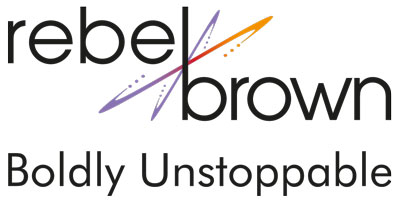Quantum computing has seen more investment, and frankly way more hype, than any other technology we’ve created. The promise is simply mind-blowing to those of us in the quantum arena. And yes, as in any significant innovation, the technology is not ready for prime time, yet. We have a way to go, years in fact. But that doesn’t mean we can wait. Here’s why.
This shift is very different from all previous processor advancements. It’s not an evolution in the way we’ve always done it. It’s a whole new paradigm that demands completely new, and complex, skills. Skills that require years to acquire. Hiring quantum experts isn’t an option. There aren’t enough to go around as it stands today. Translation: They are expensive and extremely rare.
McKinsey research shows that there is only one qualified quantum candidate available for every three quantum job openings. By 2025, McKinsey predicts that less than 50 percent of quantum computing jobs will be filled unless significant interventions occur. Up-skilling of current on-track graduates with quantum-focused master and doctoral degrees can fill a piece of the gap, but not all of it.
The reality is that we can’t fill the quantum jobs today, which means advancing quantum innovation tomorrow and the day after becomes a significant challenge. Even as quantum hardware and software continue to advance and remove the barriers to production-ready status, our workforce lags behind.
Organizations must invest in their own quantum workforce education to ensure they have the critical talent for quantum computing. Those who don’t will lose competitive advantage when the systems become ready-for-production.
What Skills Are Needed for a Quantum Workforce?
Quantum computing covers a wide range of computing and technology solutions, from quantum computer hardware and software to associated technologies including networking, security, imaging, dots and more. There are a wide range of skill sets that must be developed across these technologies.
Where do you begin? First let’s talk about the high level skill arenas that are demanded by quantum.
Quantum Mechanics/Mathematics/Quantum Physics/Engineering
Quantum technology and computing are based on quantum mechanics, which is a field within Quantum Physics and Physics overall. It requires in depth knowledge of the above to understand and use these innovations. For example, foundational mathematics requirements include real/complex analysis, linear algebra, statistics, and calculus.
Quantum Software Programming
Traditional programming and quantum programming are very different. Programmers need to understand quantum mechanics/physics and math, plus learn highly complex software development environments to create software including applications, algorithms, orchestration and more. Specific programming languages required include Python, C++, Matlab, C# and more.
Quantum Hardware
Quantum hardware requires skills including hyper-cooling/cryogenic techniques, microwave engineering, photonics/lasers, nano-fabrication, and data acquisition.
Each and everyone of these arenas is dramatically different from its probably counterpart in traditional computing. As we dive into the more specific skill sets and expertise required, you’ll see even more of these differences.
Specific Skills to Drive Quantum Computing Adoption
There are several specific areas within the broader areas above where deep expertise is in high demand, focused on solving the barriers that quantum. faces today. Critical skills include:
Quantum error correction
One of the most significant barriers to quantum scale and adoption is its lack of error correction. This is especially true with today’s Noisy Intermediate Scale Quantum (NISC) systems. Expertise to eliminate this barrier is in high demand and is one of the most critical requirements for quantum to move from technology innovation to production status..
Fault tolerance
Fault tolerance goes hand in hand with error correction. For enterprise production use, quantum must deliver redundancy across the system to maintain computational fidelity in the presence of faults during the computation. Since quantum computers ate highly susceptible to any form of noise or disruption, fault tolerant processing is a must-have, and a significant challenge today.
Quantum computer architectures
Since we are in the early stages of quantum, there are no standard architectures or interfaces as we’ve come to expect in our commercial world. Expertise is needed in various architectures including gate-models, annealing, photonic systems, and trapped ion systems. New architectures are being brought to market as well, requiring additional expertise. The most innovative architectures move beyond traditional gate anbd circuit models – demanding expertise in quantum mechanics and mathematics as well as traditional architecture knowledge.
Superconducting circuits, Quantum optics, and Ion traps
All the different quantum architectures leverage different methods to create qubits, for example, gate models vs annealers. Expertise in all these diverse methods is in demand. As organizations move forward to select their preferred quantum architecture, diverse knowledge of all the options is essential to ensure the best possible decisions.
Lab skills
Most quantum computers and technology are configured, programmed, and deployed in labs. That’s because of the complex nature and controlled environments required to operate them, far beyond the demands of early supercomputers. New hardware innovations are not nearly as demanding, but lab skills are still needed. Much of today’s quantum work is dependent on highly specialized lab environments.
Quantum algorithms
While traditional algorithms can be computed on a quantum computer, the true value of quantum will come from algorithms designed to specifically exploit quantum methods including superposition and entanglement. Algorithms must be coupled with specific industry knowledge, e.g., financial, pharmaceutical, optimization etc. We must develop both the skills to program these algorithms and to work with business teams to truly understand the needs of the organization vs only the mathematics of the computation.
Artificial intelligence and machine learning
Quantum has the potential to power artificial intelligence to new levels of prediction accuracy, while expanding the potential results. One challenge is training AI given the large data sets. Machine learning can be used to train in preparation for AI computations. By making this training process faster and more accurate, AI researchers can analyze large data models to deliver even more precise and powerful predictions.
High Performance Computing
Quantum computer’s power means they will solve computations more efficiently, faster and with better results than traditional HPC systems. Yet many of their computations will derive from processing on these systems today. Knowledge of these systems and their highly individualized programs and computations is required to advance and accelerate the development and deployment of quantum systems for true commercial problem solving.
The Bottom Line
Advanced technology innovation is naturally focused on the coolness factor of the technology itself. It’s been that way since I started in the technology business back in the days of mainframes… the technology is always the focus.
In the case of quantum computing, that’s not the only critical focus. Quantum is the first time we’ve faced the dilemma of adopting a completely new and unique technology innovation. One that exhibits little or no similarity to any other computing advancement any of us have experienced. Ever.
We are at significant risk of falling behind the. quantum computing curve due to a lack of the human skills and capabilities demanded by these powerful systems. If we wait til they are ready for primetime – we will be years behind.
We are facing a balancing act; how much to invest today, where to invest it, and most importantly, how to assure we are ready for the advantages quantum can and will bring to select business operations. It’s a critical decision, and one that must be made soon to take advantage of the future.
In Part 2, we’ll discuss the “Hows” in preparing a quantum skilled workforce.






